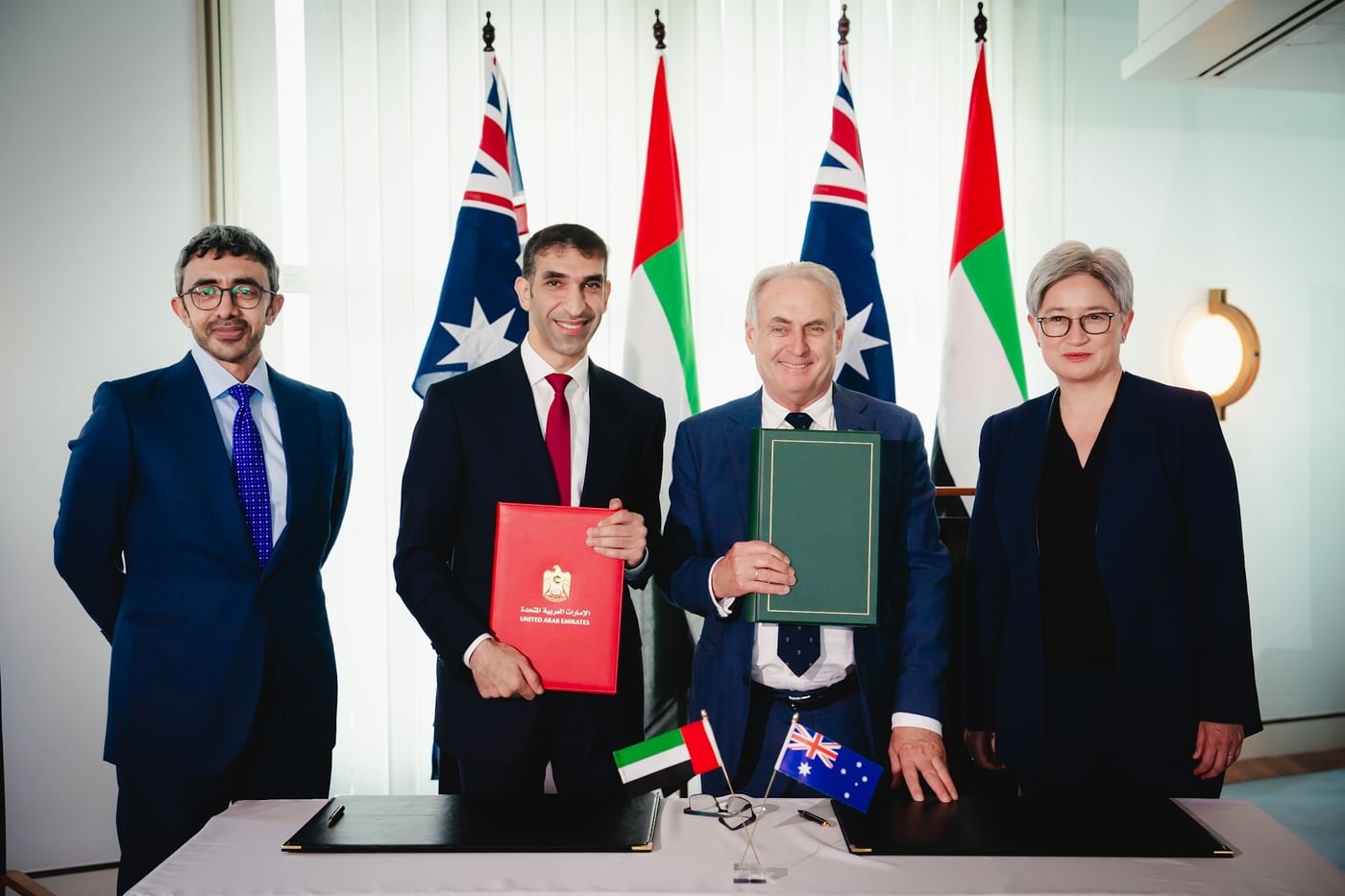On November 6, the UAE and Australia formalized a Comprehensive Economic Partnership Agreement (CEPA), marking a new chapter in their bilateral trade relations. H.H. Sheikh Abdullah Bin Zayed Al Nahyan, UAE Deputy Prime Minister and Minister of Foreign Affairs, attended the signing ceremony during his working visit to Canberra. The agreement was signed by Dr. Thani Bin Ahmad Al Zeyoudi, UAE Minister of State for Foreign Trade, and Don Farrell, Australia’s Minister for Trade and Tourism.
The CEPA underscores a shared commitment to enhancing trade ties, stimulating private sector collaborations, and facilitating investment flows. Following the September conclusion of negotiations, this agreement, once fully implemented, will position Australia as the first MENA trade partner for the UAE. It is expected to drive bilateral non-oil trade to over $15 billion by 2032—tripling the $4.23 billion recorded in 2023.
H.H. Sheikh Abdullah praised the agreement, stating, “The signing of a Comprehensive Economic Partnership Agreement between the UAE and Australia is a clear demonstration of our desire to build bridges of cooperation and mutual benefit across the globe.” He emphasized Australia’s role as an established partner in trade, culture, and sports, noting that the CEPA would deepen these bonds and create greater opportunities for mutual business growth.
Trade between the two nations has been expanding steadily, with non-oil trade reaching $2.3 billion in the first half of 2024—a 10.1% increase compared to the same period in 2023. Analysts view the agreement as a significant step toward meeting shared goals in economic diversification and sustainability.
Josh Gilbert, a market analyst from eToro, commented, “This agreement represents a pivotal moment for both Australia and the UAE, unlocking new opportunities for sectors like food production and energy resources. It reflects the global shift toward sustainability and economic diversification.” Gilbert highlighted that Australian food producers stand to benefit considerably, as reduced export tariffs will facilitate the flow of premium products into the UAE, which relies on food imports to meet growing demand.
As the UAE continues to position itself as a global economic hub, the partnership offers Australia a strategic entry into the MENA region, fostering sustainable growth and strengthening economic security.






